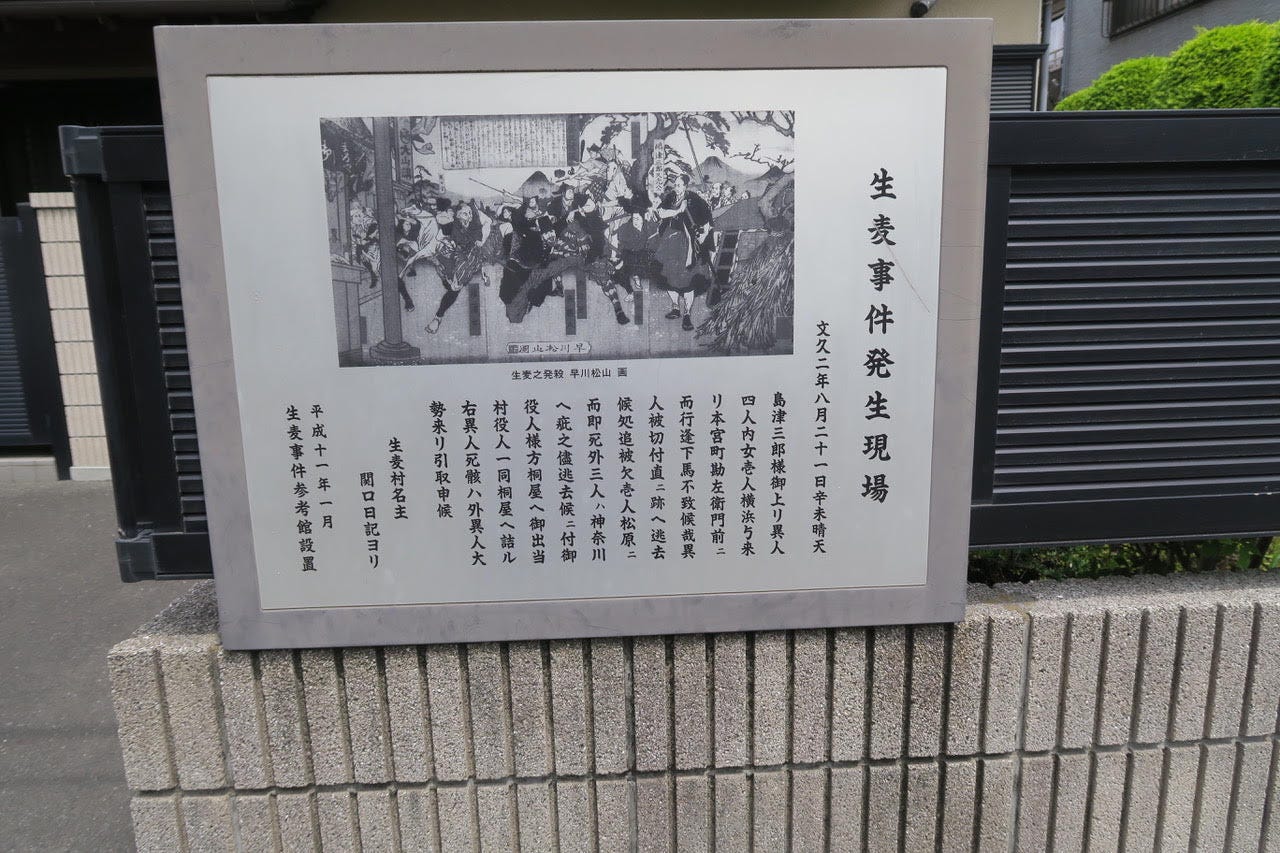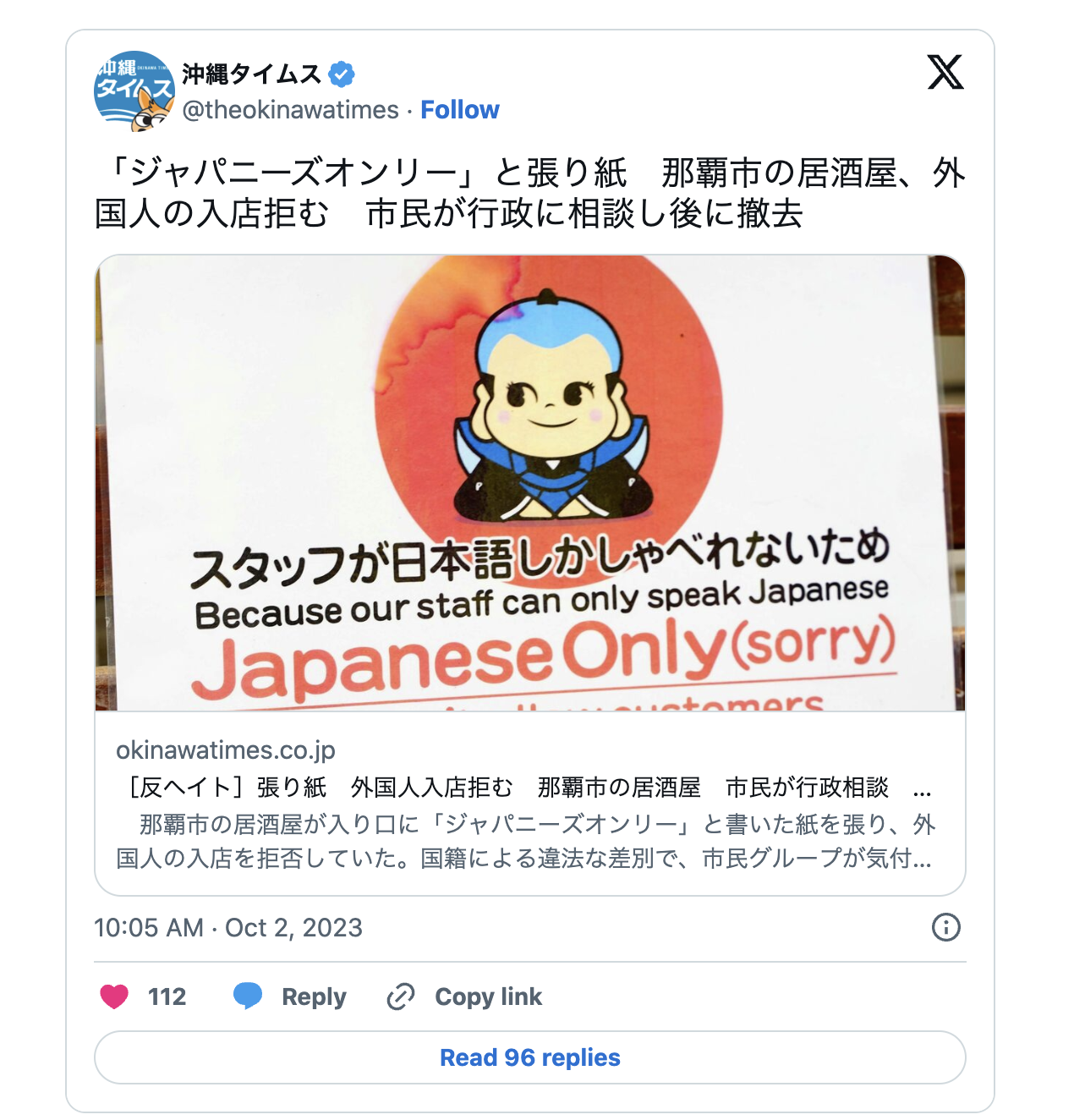mytest
Books, eBooks, and more from Debito Arudou, Ph.D. (click on icon):





![]()


UPDATES ON TWITTER: arudoudebito
DEBITO.ORG PODCASTS on iTunes, subscribe free
“LIKE” US on Facebook at http://www.facebook.com/debitoorg
https://www.facebook.com/embeddedrcsmJapan
http://www.facebook.com/handbookimmigrants
https://www.facebook.com/JapaneseOnlyTheBook
https://www.facebook.com/BookInAppropriate
If you like what you read and discuss on Debito.org, please consider helping us stop hackers and defray maintenance costs with a little donation via my webhoster:

All donations go towards website costs only. Thanks for your support!
Hi Blog, and Happy New Year! This column marks a complete departure from my Japan-based opining and more what I’m professionally researching now: The state of democracy in the US and elsewhere. I’m sure there are a lot of other informed venues you can read on this subject, but if you’re interested in my take as a Political Scientist, well here you go. I hope 2025 turns out as well for you as it possibly can, but I’m in the camp where I don’t think it will, and offer some strategies below. Thank you as always for reading and commenting to Debito.org. Debito Arudou, Ph.D.
/////////////////////////////////////////////////
Visible Minorities 63: Trump’s Weak Mandate
Subtitle: Trump is reentering the presidency with what has been called an “overwhelming, historic mandate.” That’s not true. In fact, the case is stronger that what happened was less a matter of support for Trump and more a worldwide repudiation of incumbents. Keep reminding people of that.
Shingetsu News Agency, January 20, 2025 by DEBITO ARUDOU in COLUMN
Courtesy https://shingetsunewsagency.com/2025/01/20/visible-minorities-trumps-weak-mandate/
SNA (Tokyo) — Donald Trump has been sworn in today as the 47th American president, returning to power in what is being built up in politics and media as popular legitimacy for his authoritarianism.
Since November, his supporters have claimed that he was re-elected by “a massive margin” (Vivek Ramaswamy), giving him “an overwhelming mandate” (Spokesman Steven Cheung and House Majority Leader Steve Scalise), as a repudiation of “progressive parties who have lost touch with voters’ concerns” (Editorial, The Observer (UK)).
Sure seems that way. Both chambers of Congress and the corrupted Supreme Court (which granted Trump immunity for anything he does as official duties while in office) are in the hands of the Republicans. In poker, that’s pretty much a royal flush.
But I still say, “Not so fast.” By assuming this victory entitles him to do whatever he wants, because apparently that’s what the voters want, we’re giving him more power than he deserves in a democracy. And his victory was certainly not an “overwhelming mandate” by any measure.
Look at the Statistics: The Senate
Brace yourself for a walk through the political weeds. I’ll simplify the system a bit for those who aren’t familiar with the structure of American politics:
In America’s legislature, the Senate (upper house) has a clear majority for Trump’s Republican Party (GOP) over the leftist Democratic Party (Dems). Out of 100 seats, the balance of the Senate shifted from 51-49 Dem to 53-47 GOP, a loss of four seats for the Dems.
In a two-party system, this matters because control of the chamber means control over the chamber’s rules, agenda-setting, committee assignments, leadership, and confirmation of Trump’s cabinet and judicial nominations.
But it’s not an “overwhelming” majority. This also matters because the US Senate is not majoritarian. You need a supermajority (60 senators) to pass most legislation (thanks to a rule called the filibuster). And since the Senate hasn’t had a supermajority for either party since 1964, it’s still pretty much business as usual in 2025.
Granted, there have been significant holes punched in the filibuster in the past couple of decades (that’s how the Supreme Court, for example, got stacked with Trump justices in his first term), but unless the GOP gets rid of the filibuster (not impossible, but the current form of the rule has been in place for more than a century), the Dems can still easily blockade and force compromises.
Look at the Statistics: The House
The other chamber, the House of Representatives (lower house), is like a regular legislature where you need a simple majority to pass things. But in 2025, the voting margin is even slimmer than it was before the election. Despite all the talk about a “red wave” for Trump, his party actually lost one seat from its pre-election majority to wind up at 220 GOP to 215 Dem.
Yes, that means that the House GOP, like in the Senate, retains control of chamber rules, speakerships, and leadership in committees.
But do the math. In the likely event that all 215 Dems vote as a bloc, that means only three GOP defections will doom a bill.
And since three GOP Congresspeople have resigned their seats to vie for Trump cabinet positions, that means the margin (until those people are replaced by their state governors or special elections, which may take months), is 217-215. One GOP defection dooms the boldest moves for most of Trump’s first 100 days.
And given that Congress usually has somebody resign or die every session, these are the slimmest margins of support for a president in a long time.
Now let’s turn to Trump’s claims of popular support for his programs because he won the election.
Caveats to Trump’s Mandate
Yes, Trump won the popular vote. But not by much. He won by 1.7% more votes than Kamala Harris got. Good for him, but that’s a smaller percentage than the 2.1% of the popular vote Hillary Clinton got more than Trump in 2016 (and Clinton only lost because of the weird US Electoral College).
Source: MSNBC, Nov 7, 2024
It’s also the fourth-smallest margin of victory in the 26 presidential elections over the past century (ahead of Nixon 1968 at 0.7%, Kennedy 1960 at 0.2%, Bush Jr. 2000 at -0.5% (due to another Electoral College-only victory), and Trump again in 2016.
Source: US Senator Sheldon Whitehouse (D-RI)
But still, Trump won the popular vote, right? Yes, but not by a majority. Trump got 49.8% of the vote (versus Harris’s 48.3%). That’s a plurality, not a majority.
The point is that any claims of Trump’s “overwhelming” victory are clearly overblown. Turns out that more than half of American voters did not vote for him.
Worldwide Trends in Democracy
Trump’s victory is actually part of a worldwide wave against the incumbent.
Believe it or not, nearly half of the world’s population (3.7 billion people) voted in 2024. And as noted in the Financial Times, almost all democracies decided to vote out the incumbent party, regardless of whether it was on the Left or the Right.
Places like Lithuania, France, and Belgium saw the party in power lose seats by 30% or more. Most famously, the UK Conservative Party lost a whopping 46%!
Source: MSNBC, Nov. 7, 2024
For its part, the United States saw a 7% shift against the incumbents, who happened to be the hapless Democrats. But if you want to turn the frown upside down, that means that on a global scale, the Dems in fact did better than all other leftist parties worldwide (the only exception being Mexico, where the leftist governing party won in a landslide, expanding their support from 54% to 61%).
But of course, that’s not how it’s being spun by the media and political operatives. They keep harping on about how all branches of government are in the hands of one party so Trump can do whatever he wants.
Wrong. Trump’s victory was narrow at best, and not necessarily because voters supported Trump’s policies, but because they wanted a change from the status quo. And in the United States, that means there’s only one other party to vote for.
And that’s why we need more people taking civics classes on how to read elections, so they don’t fall for the spin.
Reading This Election
The fairest conclusion that can be drawn is that the United States is split evenly, a 50-50 country (often seen in two-party, “winner-take-all” electoral systems).
Or more accurately, when considering the 244+ million voting-eligible population of Americans, 31.5% voted for Trump, 30.6% voted for Harris, and 37.7% did not vote at all. The country is split into even thirds.
Source: Ian Carillo, Ph.D.
Now put that through the American election filter where outcomes are measured not by total popular vote, but state-by-state and in mostly “gerrymandered” (uncompetitive) districts drawn by states usually dominated by one political party.
This means that small shifts in the electorate (sometimes only a couple thousand votes) can swing whole states in favor of one presidential candidate or another.
Yes, this worked in Trump’s favor (as the Electoral College famously gives advantages to rural, conservative areas), winning all “swing states” that were competitive in this election. But that means the pendulum can swing back, and probably will do so in two years when all of the House and a third of the Senate go up for election again.
It’s pretty much a law of political gravity that the incumbent president loses seats in Congress (the notable exception being, for the first time since 1934, Biden in 2022). So we can anticipate this happening again in 2026.
But again, this is not an “overwhelming” or “massive” victory for Trump by any measure.
The Point: Do Not Obey in Advance
One of the features of the US executive branch is that it, unlike the fractious Congress, is intensely hierarchical. Once installed, the president has effective control over the US military, foreign policy, border security, military assignations, the nuclear arsenal, and entire budgets (which, yes, have to be approved by Congress, but they have to want to hold the president accountable).
But over the past century, Congress and the Supreme Court have increasingly abdicated their oversight powers in favor of the theory of the “unitary executive.” This has effectively given the man who already occupies the most powerful position in the world even more powers, such as conducting secret activities while immune to the rule of law, discretion over whether to spend budgets earmarked by Congress, hiring or firing apolitical bureaucrats based upon their loyalty to Trump, pardoning people for political gain and enhanced corruption, and whipping members of Congress to do his bidding or face being “primaried” from office.
America’s fabled federal “checks and balances” eroded to an inflection point in 2025. And starting today, Trump is going to leverage all this politics of fear and personal retribution into making government into a transactional business that always profits him, depicting any dissent as enemy action, and doing what he can to whiten up the avenues of power. All while the GOP pretends there’s a coherent conservative ideology behind it all. The rich and powerful now see it clearly and aren’t even hiding the fact they’re lining up to kiss the ring, “paying to play.”
And we’re all supposed to wish it “godspeed” as part of a “honeymoon period,” as if it’s just politics as normal.
The point of this essay is to bear in mind that this election has not given him the mandate to do any of this.
A common adage spouted by cynics is that “people get the leaders they deserve.” However, that fatalism is fatal to democracy, and voter resignation is in fact part of the authoritarian playbook.
Have a read someday of Yale historian Timothy Snyder’s important booklet, On Tyranny. I teach it in my classes. The very first lesson is:
“Do not obey in advance. Most of the power of authoritarianism is freely given. In times like these, individuals think ahead about what a more repressive government will want, and then offer themselves without being asked. A citizen who adapts in this way is teaching power what it can do.”
That’s why we’ve heard so much about the “overwhelming mandate.” It’s a ploy to get us out of the way.
It’s our job as defenders of democracy to not enhance Trump’s power by attrition.
A golden rule of the game of chess is that, “If you let your opponent accomplish their goal, you will lose.” So do what you can to thwart.
Of course, I assume that most people will shrug and say, “I haven’t the time or energy to picket outside, call my representative, etc.”
What you can do is what we see people always do when disaster strikes: Send a little money to the helpers.
Fund some civil-society organizations (the ACLU, Southern Poverty Law Center, Ballotpedia, Open Secrets, Democracy Docket, Indivisible, etc.) who are keeping track of corruption, lawfare, voting rights, social justice issues, etc. Sending them five bucks will not break the bank. In America, you spend more than that tipping your server for dinner.
The least you can do is pay your journalists, especially local. Take out a paid subscription to a few reliable news agencies. They are doing god’s work.
The End of the Tunnel
Let me try to end this column on a hopeful note without being panglossian.
As a benchmark, American presidents have “the first 100 days” to get as much done as possible. That’s Trump’s momentum to lose, and he has a habit of being capricious enough to blow up his own policies.
And realistically, short of a full descent into autocracy, Trump has two years (actually, eighteen months, given that Congress gears up for re-elections six months prior) before the above-mentioned political gravity sets in and the pendulum probably swings back.
That’s the window for him to do his worst. No doubt he will try. But that’s better to manage mentally than thinking in terms of four more years.
Meanwhile, remind others when you can that Trump’s mandate is overblown. A simple reminder that a majority of Americans didn’t vote for him is probably sufficient in most situations. The belief of invulnerability and inevitability is a self-fulfilling prophecy. Let’s do what we can to break that spell.
ENDS
Collated sources and links in a powerpoint:
2024 Election Results and 47’s Mandate
======================
Do you like what you read on Debito.org? Want to help keep the archive active and support Debito.org’s activities? Please consider donating a little something. More details here. Or if you prefer something less complicated, just click on an advertisement below.



























